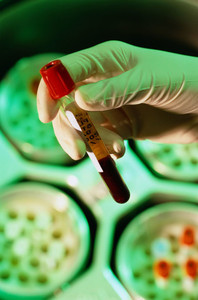In the race for biosimilar/biobetter monoclonal antibodies (MAbs), it is interesting to compare originator MAbs, e.g. mouse-human chimeric infliximab (Remicade) of Johnson & Johnson’s Centocor versus Abbott’s fully human – and thus less immunogenic – adalimumab (HUMIRA).
Some 30- 40% of patients with rheumatoid arthritis (RA) fail to respond to anti-tumour necrosis factor (anti-TNF) therapy. Some, though not all of this failure, can be explained by immunogenic antibody responses to the drugs. When patients do not respond to one TNF antagonist, doctors frequently switch to another, but the choice of drug is generally not evidence-based, and there is considerable variability in subsequent response.
In a cohort study by Mr.Geertje Bartelds et al., the Jan van Breemen Institute in Amsterdam, The Netherlands, it was investigated how antibodies against anti-TNF agents influence the immunogenic antibody response after switching from infliximab to adalimumab in RA. The study was published online in the Annals of the Rheumatic Diseases on 5 July 2009 and was funded by Abbott, Wyeth, and The Netherlands Organization for Health Research and Development. One co-author served as a consultant to Abbott, Amgen, Centocor, Schering-Plough, UCB, and Wyeth, while others were also members of the advisory board of Abbott and received honoraria for lectures.
The cohort study consisted of 235 RA patients, all treated with adalimumab. At baseline fifty-two patients (22%) were previously treated with infliximab (‘switchers’), and 183 (78%) were anti-TNF naive. Disease activity (using the DAS28score) and presence of antibodies against infliximab and adalimumab was assessed. Clinical response to adalimumab was compared between switchers and anti-TNF naive patients and their anti-infliximab and anti-adalimumab antibody status.
After 28 weeks of adalimumab therapy the decrease in DAS28 (ΔDAS28) for the 235 patients was 1.6 ± 1.5 (mean ± SD). Anti-adalimumab antibodies were detected in 46 patients (20%). ΔDAS28 was 1.8 ± 1.4 in patients without anti-adalimumab and 0.6 ± 1.3 in patients with anti-adalimumab (p < 0.0001). Thirty-three out of the 52 switchers (63%) had anti-infliximab antibodies. Patients with anti-infliximab more often developed anti-adalimumab than anti-TNF naive patients, (11(33%) vs. 32(18%); (p = 0.039)). ΔDAS28 was greater for anti-TNF naive patients (1.7 ± 1.5) compared to switchers without anti-infliximab antibodies (ΔDAS28 = 0.9 ± 1.4) (p = 0.009). ΔDAS28 for switchers with anti-infliximab was 1.2 ± 1.3 and did not differ significantly from anti-TNF naive patients (p = 0.262).
The authors concluded their findings suggested that non-responders could be treated according to their antibody status, with antibody-positive patients likely deriving greater benefit from switching to a less immunogenic drug acting on the same principle, or from optimising concomitant methotrexate therapy. In non-responders without antibodies, it may be more useful and cost-effective to try a drug with a different mechanism of action. More research will be needed to provide conclusive data on how immunogenicity could aid in clinical decision-making for individual patients.
References:
Geertje M. Bartelds et al. Anti-infliximab and anti-adalimumab antibodies in relation to response to adalimumab in infliximab switchers and anti-TNF naive patients: a cohort study. Ann Rheum Dis 2010. Published Online 5 July 2009.
Nancy Walsh. Antibodies Predict Response to Biologics in RA. MedPage Today. 2010 January 26.
Source: Ann Rheum Dis 2010; MedPage Today








 0
0











Post your comment